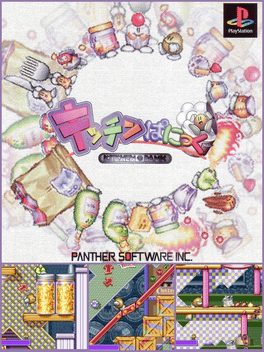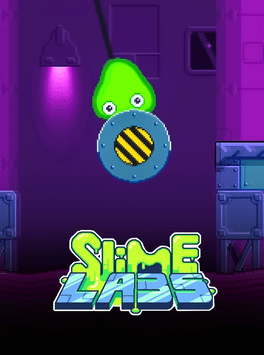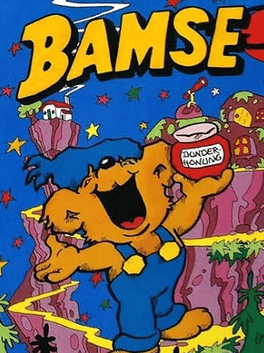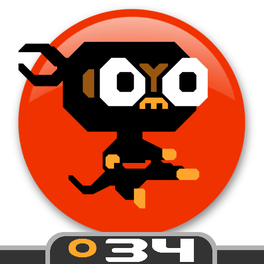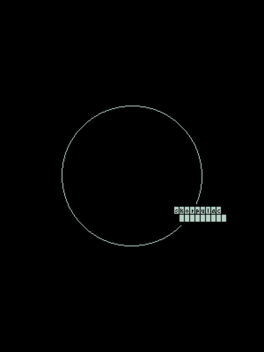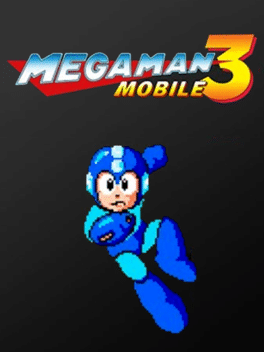Most Popular Playstation 2 Games - Page 275
-
Grand Dad Mania: Revived
Grand Dad Mania Revived, is in development once again! Created by the community, for the community. -
Kitchen Panic
1998
Kitchen Panic
1998
Kitchen Panic is a whimsical 2D platformer starring a potato. An army of cans and other foodstuffs have taken over the kitchen, and Potato must stop them! Each sprawling level is designed for both exploration and speed, as in each stage there are ten kettles of special sauce hidden around, but the game also keeps track of your fastest time on each stage. Potato has a unique special ability to aid him: he can spin in mid-air like a certain hedgehog, and use the force to launch himself further and faster than he can run. A forward spin will launch him forward, and a backspin will launch him straight upward. This greatly aids in exploration of each stage, allowing for very long or high jumps. There are also a number of power-ups to be found, including Ice Potato and Rocket Potato. The game is made up of a number of zones, each with six stages. At the end of each zone, Potato must face off against a food-themed boss enemy, such as a stack of plates or a giant ice cream cone. -
Shake Kids
1998
-
Slime Laboratory
2011
-
Helm Knight 2
2013
-
Big Nose's American Adventure
1992
You are Big Nose the Caveman and for reasons unknown you have been transported through time and landed in modern day New York City. You have set up camp beside a zoo but you are appalled that the animals are kept in cages so you have vowed to set them free. In this platform game which scrolls in multiple directions when you move, you must traverse over three levels across the USA in Manhattan, The Wild West and the Golden Gate Bridge to save your animal friends. You must shoot or avoid other people and creatures that roam the level because when touched you lose one of three lives. A joystick or keyboard can be used to control your hero. -
New Super Mario Bros. Deluxe
2012
Rom hack of New Super Mario Bros. New Super Mario Bros. Deluxe! replaces all of the level layouts with the ones from “Super Mario bros. 1″ and “The Lost Levels”. The original levels have been recreated faithfully. Some Features: - Level expansions that adds custom areas in which the starcoins are hidden to most levels. - New graphics are also implemented, such as tilesets, bottom screen backdrops, level backgrounds, and edited worldmap textures. - Includes all the levels from SMB1, and all the levels from TLL, including Worlds 9, A, B, C, and D. - Original retro graphics have been update to fit in with the NSMB style. - The original theme of the original levels have been preserved. - The Bowser Jr. fights have been modified to add more challenge. -
Henry Danger Crime Warp
2017
Kid Danger and Captain Man are back chasing bad guys through time and space! This time their adventures take them to the Groovetopia dimension of Sky Whale! You’ll battle toga-clad bears, hot dog slinging turtles, and even face off with Frankini as you free Groovetopia from his evil clutches! Get ready to punch, jump and kick your way through this funky, groovy world! -
Release Me
2018
Release Me
2018
In Release Me, you will control our round hero and try to release the locked power cube in a variety of stage settings and under a limited time. Along the way, you will encounter various enemies and tread along treacherous paths and moving obstacles which will kill you in an instant hit. You can collect tokens to increase score and a freeze cube to freeze all the enemies for a limited time, and a key to unlock the cage, and release and eventually collect the power cube. -
Soosiz HD
2009
Soosiz HD
2009
Darkness is falling and your friends are missing. Do you have what it takes to save the world? Experience the groundbreaking gameplay mechanics, excellent playability and pixel-precise controls in this gravity-defying platformer where words like up and down get a totally new meaning. Simple controls make Soosiz easy to learn, but it's a challenge to truly master the game. Enhancing your skills will be essential in beating the new gameplay elements and enemies introduced in each world. Watch out for the reduced gravity in space, slippery surfaces on the ice, gravity fields, freezing fountains and more. -
Loot Monkey: Bling Palace
2018
Loot Monkey: Bling Palace is 2D, flip-screen platformer that tests your wits and your patience, not your ability to mash buttons. Inspired by Jet Set Willy and Manic Miner, Loot Monkey: Bling Palace is more of a 'thinking person's platformer' where you'll need to consider your route through the many strange rooms of the loot-littered Bling Palace. -
Bamse
1993
Bamse
1993
Bamse, the strongest bear in the world, is a popular Swedish cartoon figure created by Rune Andréasson in 1962. This is his first appearance in a video game. The game was exclusively created for the Swedish market. Bamse is not an original game. Instead it is a re-skinned version of Baby T-Rex by the same developer. This explains why the settings of the game appears out of context with very little to do with the original cartoon. It also suffers from translation errors and contain left overs from the original game which do not fit in. It is a very traditional platform game where you run and jump to get to the end of the stage. There are a total of 4 "worlds", each with 3 stages and a final boss stage. The gameplay is fast paced, with slides and skateboards for added speed. You can find small jars of "Dunderhonung" and bowling balls to throw at the enemies. There are also power-ups to replenish health and obtain extra lives. -
Tentacles: Enter the Mind
2016
In Tentacles: Enter the Mind you play as the adorable and fantastical creature, Lemmy, and tap or click your way through the layers of Dr. Phluff's outrageously bizarre mind. Dispatch enemies, collect eyes and secret eggs, gain powers and abilities, and play against your friends. And when you get to the end: survive as long as you can. The Doctor has gone mad from the creatures and only you and Lemmy can save him! -
Monkey Ninja
2012
Monkey Ninja
2012
Warning! Wimps are not allowed in Master Miyoghurt's temple of trials. Proceed only if you can handle extreme pressure without losing your inner peace. A true Monkey Ninja must learn to use, not abuse, the honorable Banana Move, Fly-kick and Somersault amongst others. -
Skorpulac
2016
Skorpulac
2016
Make your way though 5 enemy-infested levels - armed only with a spear - in this bite-sized old-school sidescroller. -
Mega Man 2 Mobile
2007
-
Mega Man 6 Mobile
2009
-
Mega Man 3 Mobile
2008
Mega Man 3 Mobile
2008
Mega Man 3 Mobile is the mobile port of Mega Man 3 (NES). It was released for mobile phones and had adjustments to make the game playable on numeric keypads. -
Mega Man Revolution
2013
Mega Man Revolution
2013
Mega Man Revolution is an unofficial fangame created by Fifth Independent. It features two playable characters: Mega Man and Bass, 8 original Robot Masters, an additional 8 Special Weapons which are unique for Mega Man and Bass, quite a few stage gimmicks and some original enemies as well as returning enemies. It is in 8-bit style, with meticulous attention paid to keeping it up with the limitations of the NES where even sprite flicker may be present (although this can be shut off in the options) and the soundtrack was made in Impulse Tracker, with the program OpenMPT. In 2015, the project was taken over by Sprites Inc and entitled as Mega Man Revolution Remix in order to improve the quality of the game, design-wise, graphically, and musically in addition to making Proto Man a playable character. -
Duck Life 5: Treasure Hunt
2014
The most popular ducklings on Earth are back in the spin off to the best selling game, Duck Life. This time to explore the cave and find legendary treasure. Collect coins along the way, level up and upgrade your duck with powerful gadgets and pets then get ready to take the most epic adventure in the Duck Life world.

